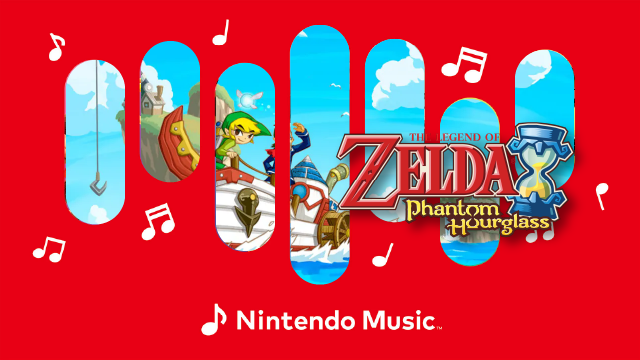The importance of preserving classic video game history remains a pressing concern within the industry, especially as iconic hardware like the Nintendo Switch continues to shape new generations of gamers.
While the digital age has made interactive entertainment more accessible and profitable than ever, industry experts and gamers alike have repeatedly highlighted the lack of cohesive strategies for archiving both games and historically significant media, such as print magazines. A recent example has brought renewed attention to this preservation challenge.
BlueSky user 'transparency' recently sparked widespread discussion by noting that one of the world’s most renowned video game reviews—the first-ever perfect 40/40 given by Weekly Famitsu for The Legend of Zelda: Ocarina of Time—is not easily accessible online.
Using clear frustration, transparency remarked on social media, "While doing some basic research into gaming history, it’s astounding how poorly some key materials are archived—such as the elusive scan of Famitsu’s inaugural 40/40 review for Ocarina of Time." The historical significance of this particular review cannot be overstated.
The Legend of Zelda: Ocarina of Time, originally released for the Nintendo 64, is widely regarded as one of the greatest video games ever made.
Famitsu, one of Japan’s leading video game publications, had been in print for 12 years prior to awarding its first perfect score—a milestone that underscored the game’s critical acclaim and set a new benchmark in the industry.
The landmark review was featured in Weekly Famitsu issue 519, published on November 27, 1998. Recounting the scarcity of archival sources, transparency wrote, “There’s an old photograph of Shigeru Miyamoto pointing at the review, and IGN published a short article about the score at the time, but that's the extent of what's publicly available.” The lack of a complete, accessible scan of this review illustrates broader preservation issues.
A reply from another BlueSky user pointed out that scans of Famitsu issues are often taken down at the publisher’s request, likely contributing to the review’s scarcity.
Meanwhile, some enthusiasts hold out hope that initiatives like the Video Game History Foundation’s digital archive, which recently became accessible to the public, may eventually address such gaps. This incident serves as a reminder that while blockbuster franchises like The Legend of Zelda continue to thrive on contemporary platforms such as the Nintendo Switch and the eShop, the archival of historical documents—whether physical print reviews or digital artifacts—remains incomplete.
Dedicated organizations and community archivists are fundamental to ensuring that the legacy of iconic titles and pivotal publishing moments are not lost to time. For preservationists and Nintendo fans alike, Famitsu’s Ocarina of Time review epitomizes the urgent need to improve the continuity and accessibility of gaming history.
As the industry looks ahead with new hardware launches and thriving digital marketplaces, reflecting on what remains missing from the past is as vital as celebrating current milestones.
While the digital age has made interactive entertainment more accessible and profitable than ever, industry experts and gamers alike have repeatedly highlighted the lack of cohesive strategies for archiving both games and historically significant media, such as print magazines. A recent example has brought renewed attention to this preservation challenge.
BlueSky user 'transparency' recently sparked widespread discussion by noting that one of the world’s most renowned video game reviews—the first-ever perfect 40/40 given by Weekly Famitsu for The Legend of Zelda: Ocarina of Time—is not easily accessible online.
Using clear frustration, transparency remarked on social media, "While doing some basic research into gaming history, it’s astounding how poorly some key materials are archived—such as the elusive scan of Famitsu’s inaugural 40/40 review for Ocarina of Time." The historical significance of this particular review cannot be overstated.
The Legend of Zelda: Ocarina of Time, originally released for the Nintendo 64, is widely regarded as one of the greatest video games ever made.
Famitsu, one of Japan’s leading video game publications, had been in print for 12 years prior to awarding its first perfect score—a milestone that underscored the game’s critical acclaim and set a new benchmark in the industry.
The landmark review was featured in Weekly Famitsu issue 519, published on November 27, 1998. Recounting the scarcity of archival sources, transparency wrote, “There’s an old photograph of Shigeru Miyamoto pointing at the review, and IGN published a short article about the score at the time, but that's the extent of what's publicly available.” The lack of a complete, accessible scan of this review illustrates broader preservation issues.
A reply from another BlueSky user pointed out that scans of Famitsu issues are often taken down at the publisher’s request, likely contributing to the review’s scarcity.
Meanwhile, some enthusiasts hold out hope that initiatives like the Video Game History Foundation’s digital archive, which recently became accessible to the public, may eventually address such gaps. This incident serves as a reminder that while blockbuster franchises like The Legend of Zelda continue to thrive on contemporary platforms such as the Nintendo Switch and the eShop, the archival of historical documents—whether physical print reviews or digital artifacts—remains incomplete.
Dedicated organizations and community archivists are fundamental to ensuring that the legacy of iconic titles and pivotal publishing moments are not lost to time. For preservationists and Nintendo fans alike, Famitsu’s Ocarina of Time review epitomizes the urgent need to improve the continuity and accessibility of gaming history.
As the industry looks ahead with new hardware launches and thriving digital marketplaces, reflecting on what remains missing from the past is as vital as celebrating current milestones.






